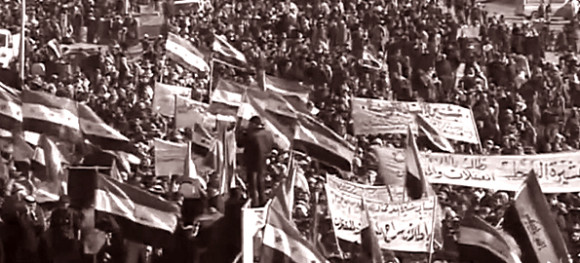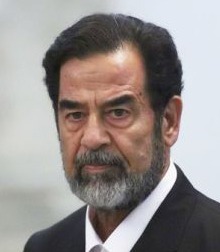HOW might the war in Syria and Iraq between armed Sunni groups and Shiite governments concern Malaysian politics? A number of Malaysian Muslims are fighting “jihad” there, while Malaysia, which follows Sunni Islam, has banned Shia Islam. There’s also growing intolerance against minority religions and “liberalism”, which are seen as threats to Islam.
What are the political parallels with the conflict in Iraq and Syria that Malaysia would do well to recognise and avoid? Political scientist Dr Wong Chin Huat addresses the notion of Muslim disunity and tells The Nut Graph of a proposal for the quest for unity in the Islamic world.

TNG: How do we make sense of the Islamic State of Iraq and the Levant (ISIL), which has rebranded itself as simply the Islamic State (IS), the new caliphate calling for the loyalty of global Muslims?
ISIL, allegedly funded by the Saudis, is now the standard bearer of Sunni ultra-nationalism. Their actions must be seen in the context of minority rule over a majority communal group. Syria is a secular regime of minority rule under the Assads, who come from the largest minority group, the Alawites, a branch of the Shiite tree.
Iraq under Saddam Hussein was quite the opposite with minority rule by Sunni Arabs over Shiite Arabs and Sunni Kurds. After American occupation, Shiite Arabs dominated the Iraqi central government and turned the tables on Sunnis, marginalising them in the name of de-Ba’athification, cleansing elements of Saddam’s Ba’ath party.
The Sunni-Shiite war in Iraq and Syria is therefore similar to the Protestant-Catholic conflict in Northern Ireland: both are communal contestations for power decorated by inter-denominational clashes.
The IS caliphate is a pan-Islamic dream of civilisational unity. But instead of promising equality for all Muslims to secure peace, it aims to achieve such unity by eliminating “deviants”.
The intra-Muslim jihad is actually caused by the lack of secularism, or more accurately, the absence of an impartial state which treats every citizen equally regardless of descent, faith and other measures of group membership.
This is in fact the fundamental issue in the entire Middle East – the absence of secularism where states take position in privileging Sunni Islam, Shiite Islam, Judaism or non-religious lifestyles. (Assad’s Syria, Saddam’s Iraq and Kemalist Turkey are all flawed examples of secularism as these states do not treat all citizens equally regardless of belief or group membership.)
Hence, wresting control over the state becomes important because the communal group that dominates the state decides how far individuals from other groups can climb up in society. It’s all about putting yourself in the right category.

Secularism is unfortunately rejected by many Islamists as a Western tool to de-Islamise or weaken Muslims as it is associated with society moving away from religion and/or the protection of minority religions. In Malaysia’s case, this is seen through a Muslim-versus-non-Muslim lens.
But the rise of secularism in Europe shows that it was born for a different purpose. Secularism owed much not only to the rivalry between the monarch and the Catholic Church, and the growth of secular thought and capitalism, but also much to the Westphalia Treaty in 1648 to end religious wars between Catholics and Protestants.
The Treaty which laid foundations for the international order of sovereign nation states which continues till today, did not only give power to the rulers to decide the official faith in their own territory, but also demanded equal treatment of all subjects before the law. Religious disputes were resolved through secular procedures that excluded religious reasoning. The treaty hence liberated Christians of different denominations from going to war for faith, and allowed both the state and individual citizens to decide their faith through a secular legal-political order.
Unlike the militant secularism that was later born in the fire of the French Revolution, Westphalian secularism was not anti-religious, but was an intra-Christian solution to end international wars and inter-communal conflicts over religion. (Kemalist Turkey’s hard secularism was modelled on the former while the soft secularism adopted by Malaya/Malaysia in 1957/1963 with an established faith is closer to the latter.)
Secularism stopped Christian Europe from bleeding to death over denominational differences and paved the way for continental integration through the European Union, an entity that is completely unimaginable if not secular.
Can Muslims ever be united enough to rise as a civilisational bloc and, among others, stop Israel’s domination of and atrocities in Palestine? Not until the idea of a Muslim Westphalian peace promising state impartiality to all citizens takes root and eliminates the rivalry between Sunni and Shiite Muslims.
How might ISIL’s call to all Muslims to support its IS be attractive to some Malaysian Muslims? Similarly, what kind of message does Prime Minister Datuk Seri Najib Razak’s reference to the ISIL when speaking to Umno members, and Minister Datuk Seri Jamil Khir Baharom’s support for the war, send to Umno and other Malay-Muslim constituents?
Jakim had already set the tone in a Friday sermon last November calling on Muslims to fight the “Shiite virus”, which it said was spreading fast in Malaysia. If you believe that Shia Islam is a threat to Muslims here, should you not feel angry and obliged to fight the same evil that is allegedly terrorising other Sunni Muslims?

But why must Shiite or other unorthodox Muslims be seen as threats? Why isn’t peaceful and open debate possible? Because – for those clinging to power – intra-Muslim pluralism would mean political division of the Malays, imaginably leading to dominance by non-Malays.
So what if former premier Tun Abdullah Ahmad Badawi endorsed the 2006 Amman Message that recognises as valid all the main schools of Islamic thought – Sunni, Shiite, Ibadhi, Ashari, Sufi and Salafi? Most Malays who are indoctrinated by the fear of non-Malay domination perhaps don’t even know that the Amman Message exists.
The subtext of what Najib and Jamil Khir have said about ISIL is to get Malaysian Muslims to see themselves as under siege, just like the Sunnis in Iraq and Syria. Like most nationalist parties, Umno thrives on the fears of its constituents and uses this fear to ensure its dominance is defended to the end.
Zaharudin Muhammad, a member of the PAS Ulama Council and also the son-in-law of PAS President Datuk Seri Hadi Awang, has openly supported ISIL. PAS, on the other hand, says it has no stand. What can this tell us about the difficulties PAS may face in dealing with this issue?
PAS shares with Umno a rejection of pluralism and the call for communal unity, except that Umno evokes ethnicity while PAS flags religion as the communal marker.
They project the suffering of Muslims elsewhere (for the likes of Zaharuddin, perhaps Sunni only) onto themselves. Hence, Zaharudin’s support for ISIL is not surprising. It would be hard for either Umno or PAS to openly support ISIL, now acknowledged as a terrorist group.
But PAS’s silence is deafening and inelegant. One would expect PAS to protest the destruction of mosques and the killing of Muslims, as it has against atrocities by Tel Aviv or when Islam is insulted by Americans. Does PAS believe similar acts become less condemnable when they are carried out by Muslims?
What if Malaysian citizens fighting in Iraq and Syria return here, and what if the notion that Sunni Muslims here are being marginalised and bullied by religious minorities gains further traction? What is Malaysia’s hope?

It is possible, as one writer puts it, that “Sunni chickens will come home to roost”.
Our best protection from violence is not even legal prohibitions against hate speech, but freedom for open debate on all things under the sun. But that itself requires a new light to look at the plural order which, unfortunately, lacks full legitimacy in the minds of many Malay-Muslims.
Secularism needs to be sold not as protection for the minorities (which may simply trigger a “why-should-we-care, do-they-care-about-us” response) or as a universal right for all, but as an instrument to allow Muslims to be liberated and strong with inter-denominational reconciliation and coexistence, just as what happened in post-Westphalia Europe. ![]()
Wong Chin Huat is a political scientist by training and is now a member of the Multiculturalism Research Group at the Penang Institute, a Penang government think tank.

